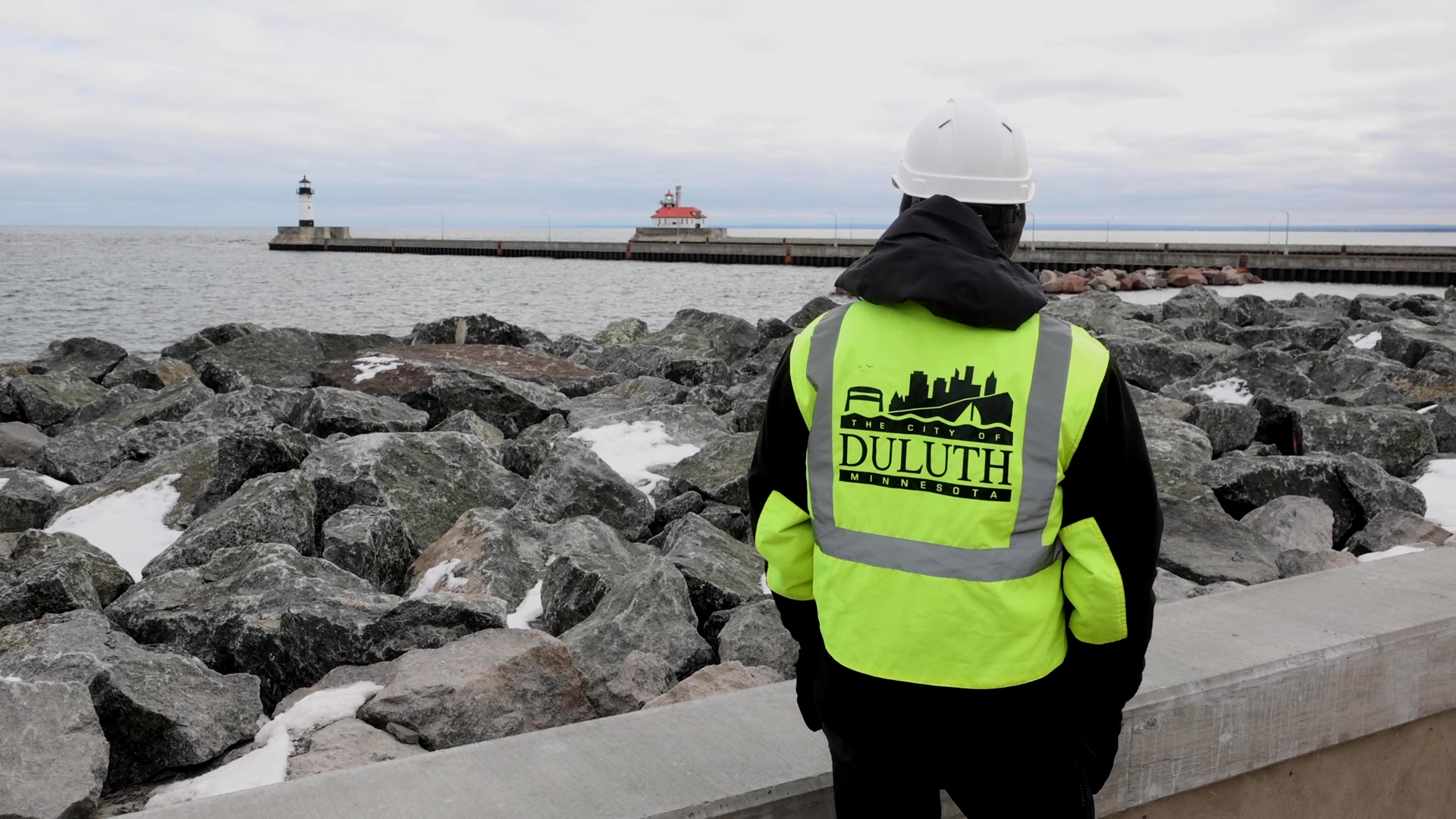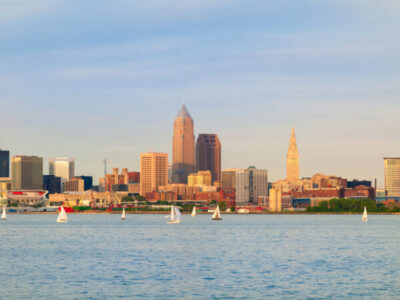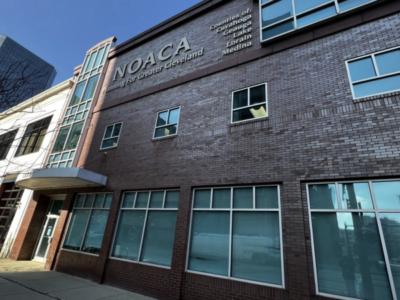
By Frank Jossi, Energy News Network
This story was first published on the Energy News Network and was republished here with permission
St. Paul last week joined a growing list of Minnesota cities passing climate resolutions aimed at adding urgency to state and local climate actions.
More than a dozen local governments in the state either have or are expected to pass climate emergency resolutions this month as part of an initiative by the Minnesota Cities Climate Caucus.
A suburban city council member, Larry Kraft of St. Louis Park, formed the caucus last year with support from the Great Plains Institute, an environmental nonprofit group that facilitates the meetings. The group meets online regularly to discuss best practices around clean energy and climate matters.
Members hope the resolutions will add pressure on state lawmakers to do more to reduce emissions, such as updating the state building code during this year’s session, while also motivating city staff to do the same through more aggressive action, emphasizing programs assisting underserved communities.
“We want to make sure the Legislature and executive branch are looking at things through a climate lens as they make investments in this critical time,” Kraft said.
Before the group formed, just three local governments in Minnesota had made similar declarations: Minneapolis, Duluth, and Crystal Bay township. Globally, more than 2,000 government units in 34 countries have passed climate emergency resolutions.
Leaders from St. Paul, Minneapolis, and Duluth recently spoke with the Energy News Network about the impact they hope the resolutions will have.
St. Paul
St. Paul City Council member Jane Prince, who introduced the climate emergency resolution, wants to create faster action to reduce carbon emissions. The two-page resolution cites local and global climate data while highlighting the impact of heat, drought, and wildfire smoke last year in the city.
The resolution notes actions the city has already taken, including drafting a Climate Action and Resilience Plan. It encourages the state and federal government to join St. Paul and take more aggressive action to eliminate emissions.
Prince hopes the resolution also encourages city department heads to be “checking the CARP [Climate Action and Resilience Plan] all the time” when making decisions. The council should do the same when passing resolutions and ordinances. “This definitely can’t be crying wolf,” she continued. “We have to do what we can on a project-by-project basis on a resolution-by-resolution basis.”
She said St. Paul has a history of being a climate leader, pointing to the city’s decades-old district energy system that uses tree waste for heating and cooling buildings. In addition, the city’s sustainable building ordinance requires any developer receiving more than $200,000 to select and comply with one of several rating systems. The city’s biggest development projects, Highland Bridge and the Hillcrest Golf Course, have aggressive environmental goals.
“St. Paul is a leader, and we should be owning that and presenting ourselves in that way,” Prince said.
Prince credited the climate activism group St. Paul 350 for calling her attention to the emergency resolution concept. St. Paul 350 activist Joan Pasiuk hopes the resolution prompts state and federal action in addition to propelling faster local activity to reduce the impact of climate change.
“We at 350 believe the solutions are at the city level, so we’re going to use that as a platform to keep presence and attention on the climate crisis,” she said. “Our organization and other advocacy groups are going to be watching to see what happens and pushing hard to increase the momentum. Really, that’s what an emergency means.”
Minneapolis
The Minneapolis City Council’s first climate emergency ordinance in 2019 was part of a global declaration. Sustainability director Kim Havey said the council wanted the resolution “to reaffirm that climate change is happening, it’s a big deal, and we need to be mobilizing faster and better. And we need to be taking more aggressive action.”
A second emergency ordinance in 2021 was more specific, requiring the city to update its climate action plan this year, improve equity measures and incorporate a social cost of carbon measure in decision-making. It also advocated for a state building code upgrade, endorsed a federal directive on climate spending in disadvantaged neighborhoods, and required new and renovated city buildings to meet sustainable building rules.
“Getting it down on paper, getting it passed and making it part of the official record and seeing what we want to get accomplished in the next year or so was important,” he said.
The social cost of carbon may establish a carbon budget for city operations, Havey said. It may also play a role in city purchases, such as vehicles, or determining how buildings should be renovated, or constructed, based on their emissions.
The city plans to follow the Biden administration’s Justice40 Initiative that calls for cities to spend 40% of federal climate-related funding money on disadvantaged communities. A better building code is another priority because 70% of emissions come from that sector in Minneapolis, Havey said. Some Minnesota Cities Climate Caucus members support legislation to upgrade state building codes.
Cities cannot have building codes beyond the statewide standard. “Unfortunately, we can’t set a more stringent code because we’re preempted from doing that by the state Legislature,” Havey said. “The city cannot take action on its own to require more efficient buildings.”
Duluth
A local group of climate activists from different organizations known as the Duluth Climate and Energy Network had encouraged City Council members to pass a climate emergency declaration. In April 2021, the council passed a climate resolution that included two important goals. One broadened a mandate to reduce carbon emissions by 80% by 2050 in municipal operations to the entire city. Another required a climate action plan by the year’s end.
Duluth hired the Great Plains Institute, which has done many climate action plans for communities, said sustainability officer Mindy Granley. In February, the City Council will hear about the plan, covering actions Duluth can take over the next three to five years. An earlier report on population vulnerability and climate adaptation informed the climate action plan, she said, and city department heads had plenty of data to share with the Great Plains Institute.
Granley conceded it would come as no surprise that Duluth, a progressive city, would pass a climate emergency resolution. Mayor Emily Larson has been outspoken about climate change and its impact. As a result, the city has joined several national climate initiatives and its new downtown hot water energy system won a 2021 Environmental Initiative award.
“I think the declaration just added a little bit of urgency to the mayor’s goals and set up a process for developing a work plan, a to-do list,” Granley said. “I’m excited. It also includes annual updates on progress to the City Council, so that guarantees me, based on the council agenda, to be able to tell them how our city did this year and what our challenges are and what we’re doing well.”
Catch more news at Great Lakes Now:
Featured image: City of Duluth Construction Project Manager Mike LeBeau looks out over the armor stones protecting the newly rebuilt Lakewalk. (Great Lakes Now Episode 1026)




